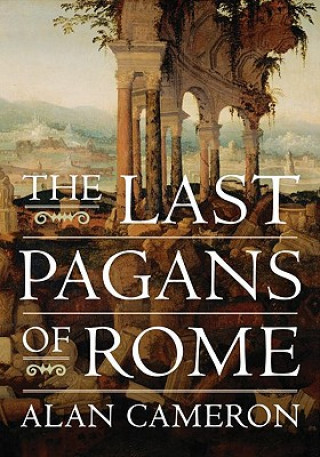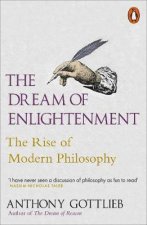
Kézbesítés
Vásárlási tanácsadó





Nem vált be? Semmi gond! Nálunk 30 napon belül visszaküldheti
 Ajándékutalvány
bármilyen értékben
Ajándékutalvány
bármilyen értékben
Ajándékutalvánnyal nem nyúlhat mellé. A megajándékozott az ajándékutalványért bármit választhat kínálatunkból.
Last Pagans of Rome
 Angol
Angol
 396 b
396 b
 hamarosan
hamarosan
 Megjelenés ismeretlen
Megjelenés ismeretlen
30 nap a termék visszaküldésére
Ezt is ajánljuk


Eusebius' Ecclesiastical History (402/3 CE) gives a vivid account of the confrontation between the Eastern Roman Emperor Theodosius and the Western usurper Eugenius. To many, the defeat of Eugenius and his pagan followers along the Frigidus River in 394 was the last gasp of a vigorous pagan revolt in the late fourth century, one spearheaded by the Roman aristocracy. This elaborate campaign to derail Christianity, as the story goes, consisted of identifiable pagan literary circles, pagan patronage of the classics, and pagan propaganda in art and literature. Recently, however, scholars have shown this picture to be wanting in accuracy and nuance. Alan Cameron's The Last Pagans of Rome will replace this view with a richly detailed portrait of pagan society during the pivotal fourth and early fifth centuries. The subject of his book is not the conversion of the last pagans but rather the duration, nature, and consequences of their survival. It is widely believed that pagan aristocrats remained in the majority till at least the 380s, and continued to be a powerful force well into the fifth century. On this basis the main focus of much modern scholarship has been on their supposed stubborn resistance to Christianity. Rather surprisingly, these aristocrats have been transformed from the arrogant, philistine land-grabbers most of them were into fearless champions of senatorial privilege, literature lovers, and aficionados of classical (especially Greek) culture. The dismantling of this romantic myth is one of the main goals of Cameron's book. If a pagan aristocracy did not mount a defiant political and cultural rearguard action, what did they do? If elite culture at this time was not starkly divided between pagan and Christian, what did it look like? By sifting through the abundant textual evidence-from the Church Fathers Ambrose, Augustine, and Jerome to the classicizing authors Claudian, Macrobius, and Aullus Gellius-as well as the visual evidence (diptychs, illuminated manuscripts, silverware, and ivories), Cameron develops sophisticated and comprehensive answers to these questions. Among the provocative conclusions he makes is that the many activities and artifacts previously identified as hallmarks of a pagan revival were in fact just as important to the life of cultivated Christians. Far from being a subversive pagan activity designed to rally pagans, the promotion of classical literature, learning, and art-and its acceptance by many elite Christians-may actually have helped the last reluctant pagans to finally abandon the old cults and adopt Christianity. Throughout Cameron's careful analysis he engages, often with wit and pugnacity, with the mountain of scholarship on the subject. The culmination of several decades of research, The Last Pagans of Rome will be quite simply a landmark publication.
Információ a könyvről
 Angol
Angol




 Hogyan vásároljunk
Hogyan vásároljunk

































